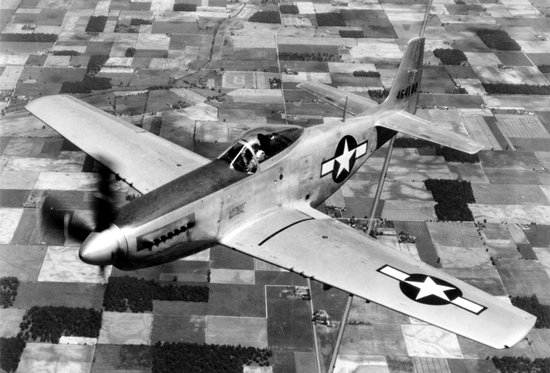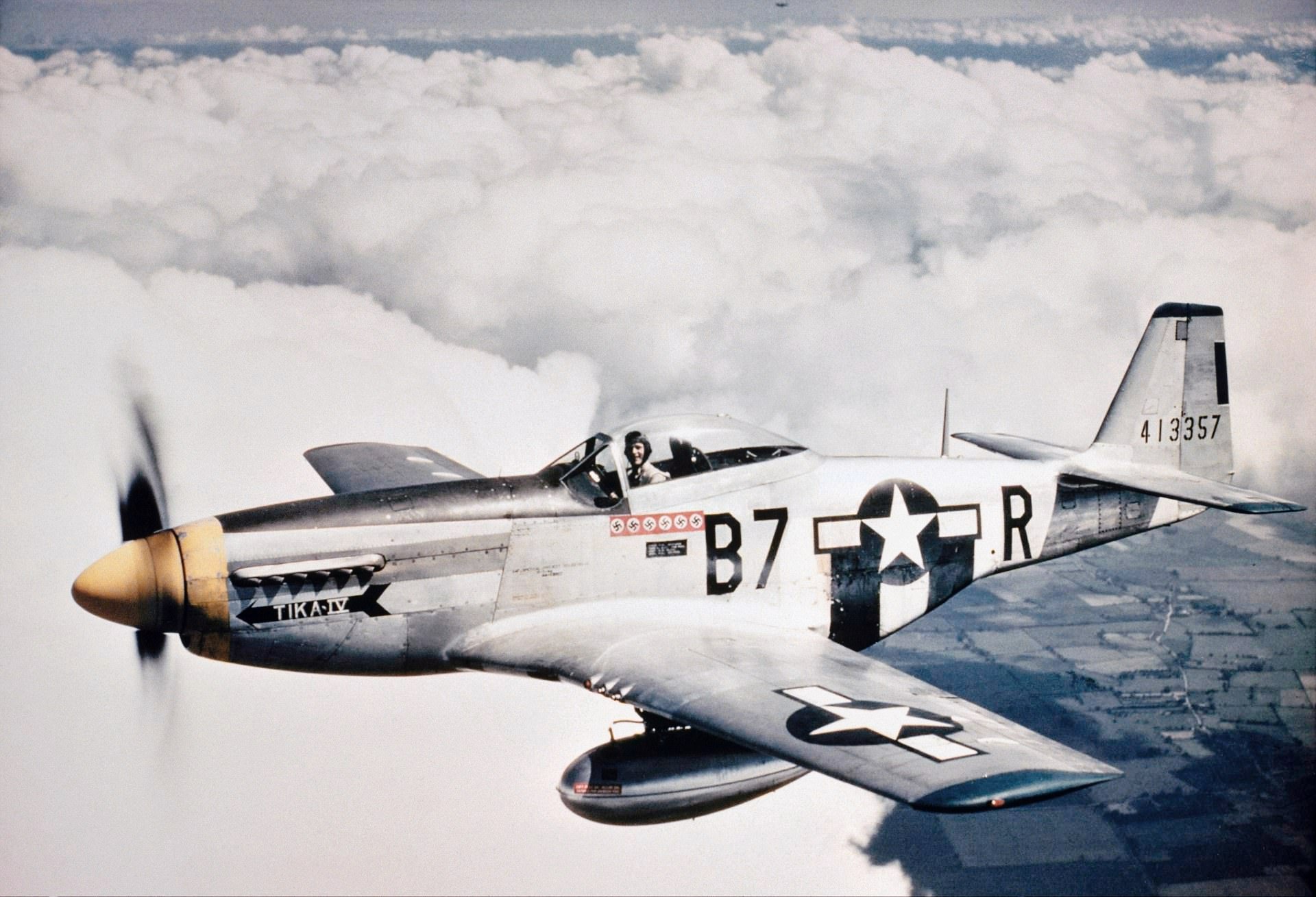The North American P-51 Mustang is a legendary plane, as much as the Spitfire or the Bf-109. No other combat aircraft of the war could go as far and fly as high as the Mustang. No wonder it was used to escort bombers over Germany and clear the skies of Luftwaffe airplanes.
Germany was far, too far for the Allied interceptors that had to go back too early, leaving the bombers to the Luftwaffe aircraft. In 1944, the introduction of the P-51 was a huge relief for the crews of Allied bombers. Very fast, with excellent handling and armament, the Mustang outclassed most German and Japanese airplanes, except the Focke-Wulf Fw-190D as a fighter interceptor (with its jet engines, the Messerschmidt 262 was a technical marvel ahead of its time, but still needed to be tested – many of them were shot down by P-51 Mustang pilots).
With the B-29 and the F4U Corsair, the P-51 is certainly one of the greatest United States’ technical achievements of the Second World War and one of the best piston engine figther aircraft ever designed. It will be remembered as the airplane that allowed the Allied Forces to penetrate deep into Germany skies without being overwhelmed by enemy fighter aircrafts.
| Type: | Fighter |
| Powerplant: | Rolls Royce (Packard) Merlin V-1650 |
| Max speed: | 437 mph (703 km/hr) |
| Ceiling: | 41900 ft (12770 m) |
| Range: | 1000 miles (1610 km) |
| Weight (empty): | 7000 lbs (3175 kg) |
| Max. T/O: | 12100 lbs (5487 kg) |
| Wingspan: | 37′ (11.30 m) |
| Length: | 32′ 3″ (9.80 m) |
| Height: | 13′ 8″ (4.17 m) |
| Armament: | Six .50-cal. machine guns |

